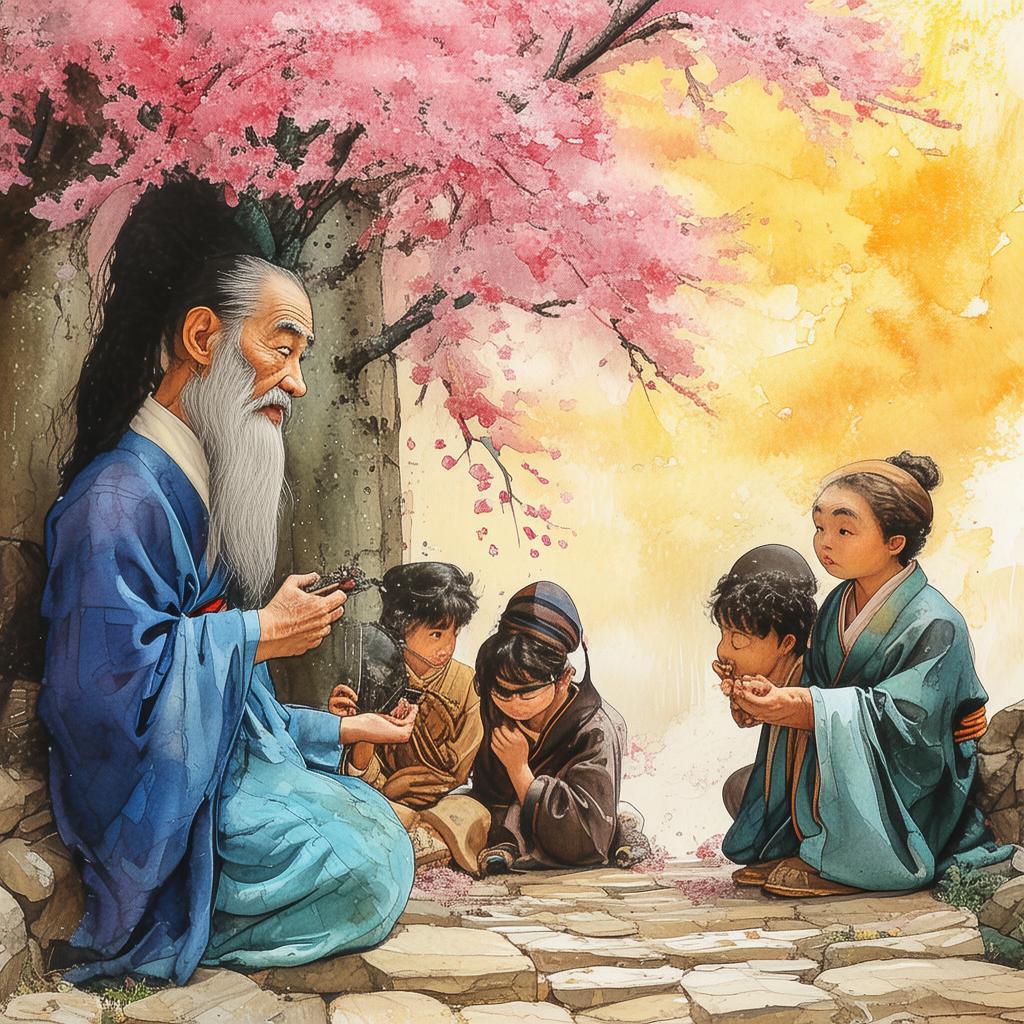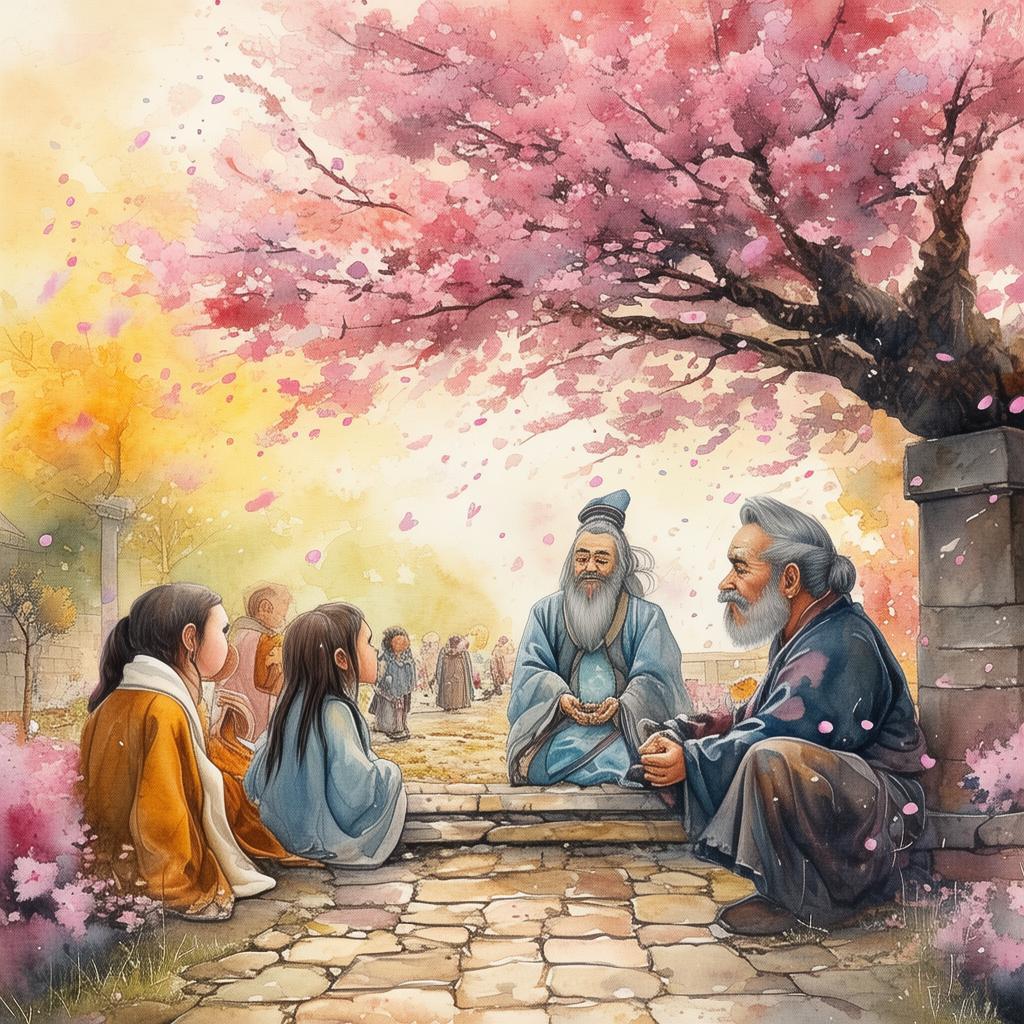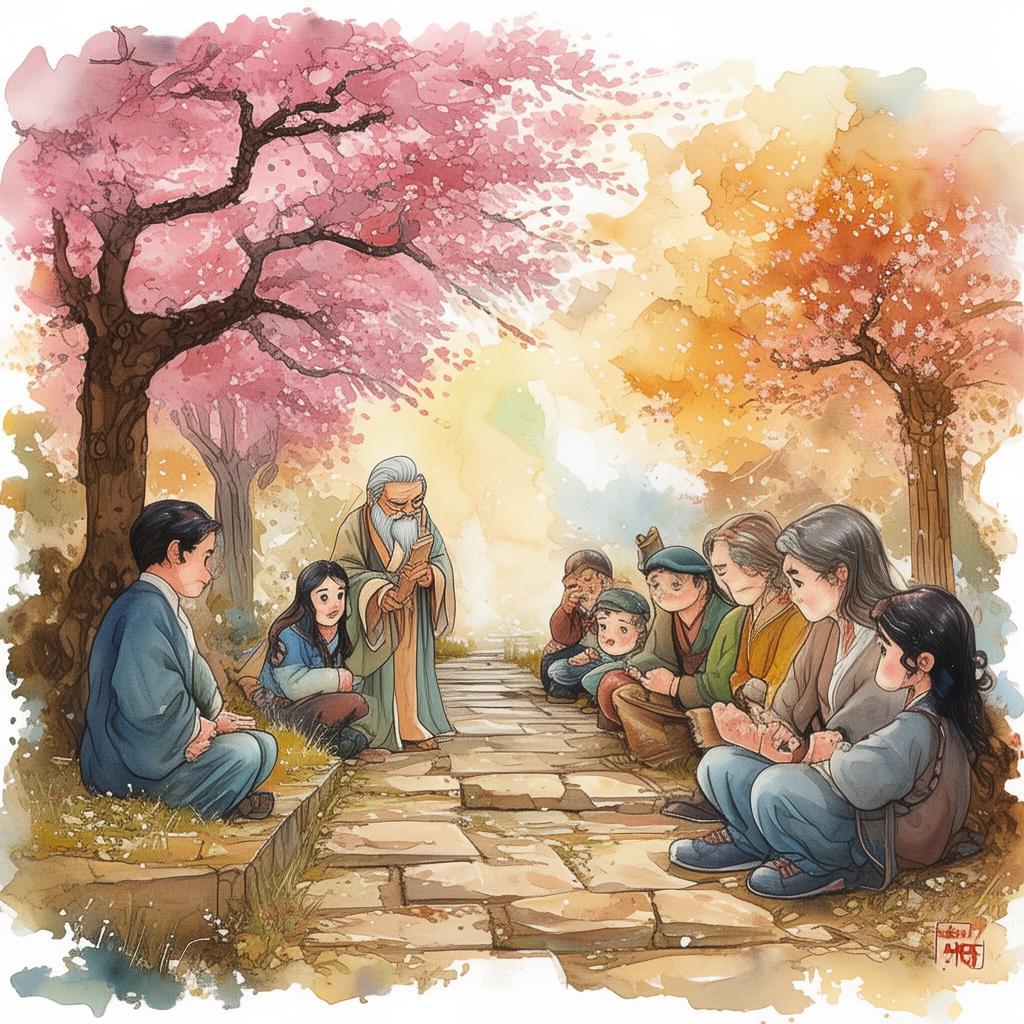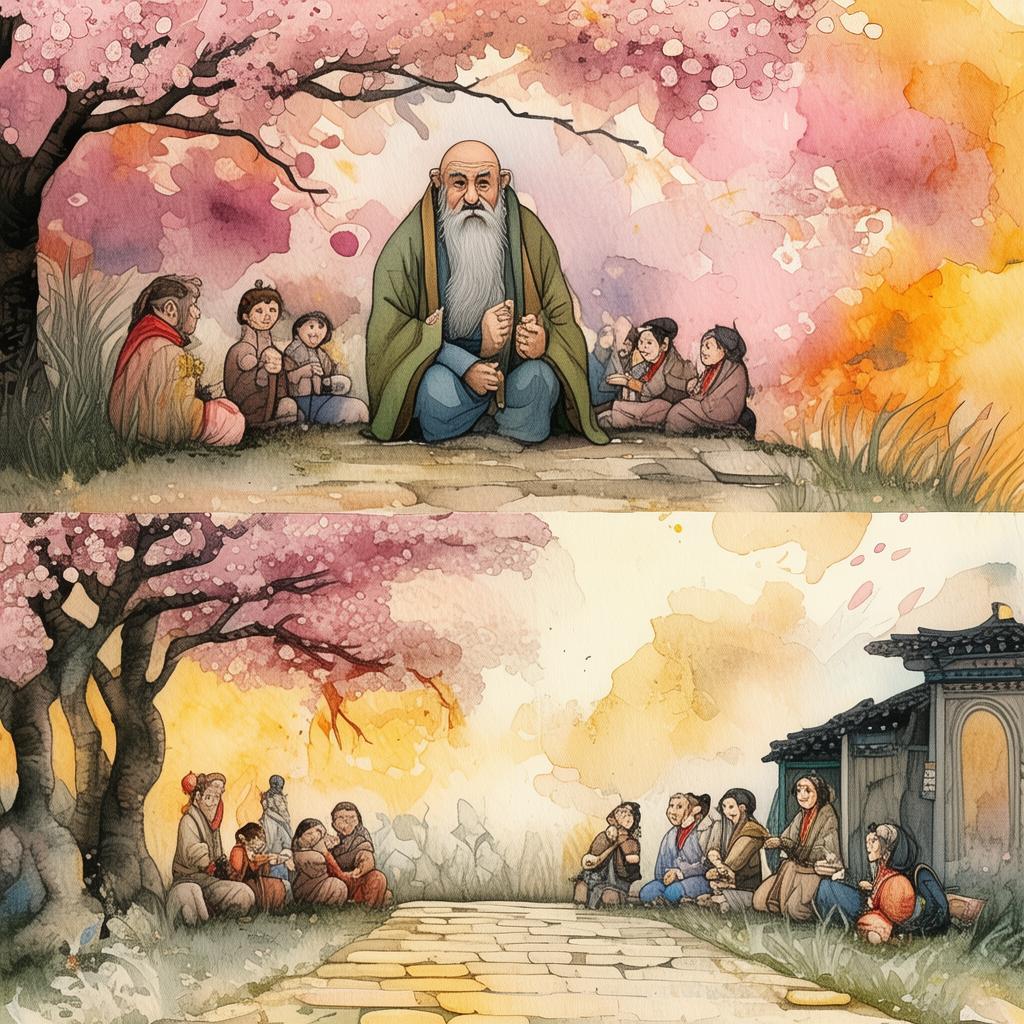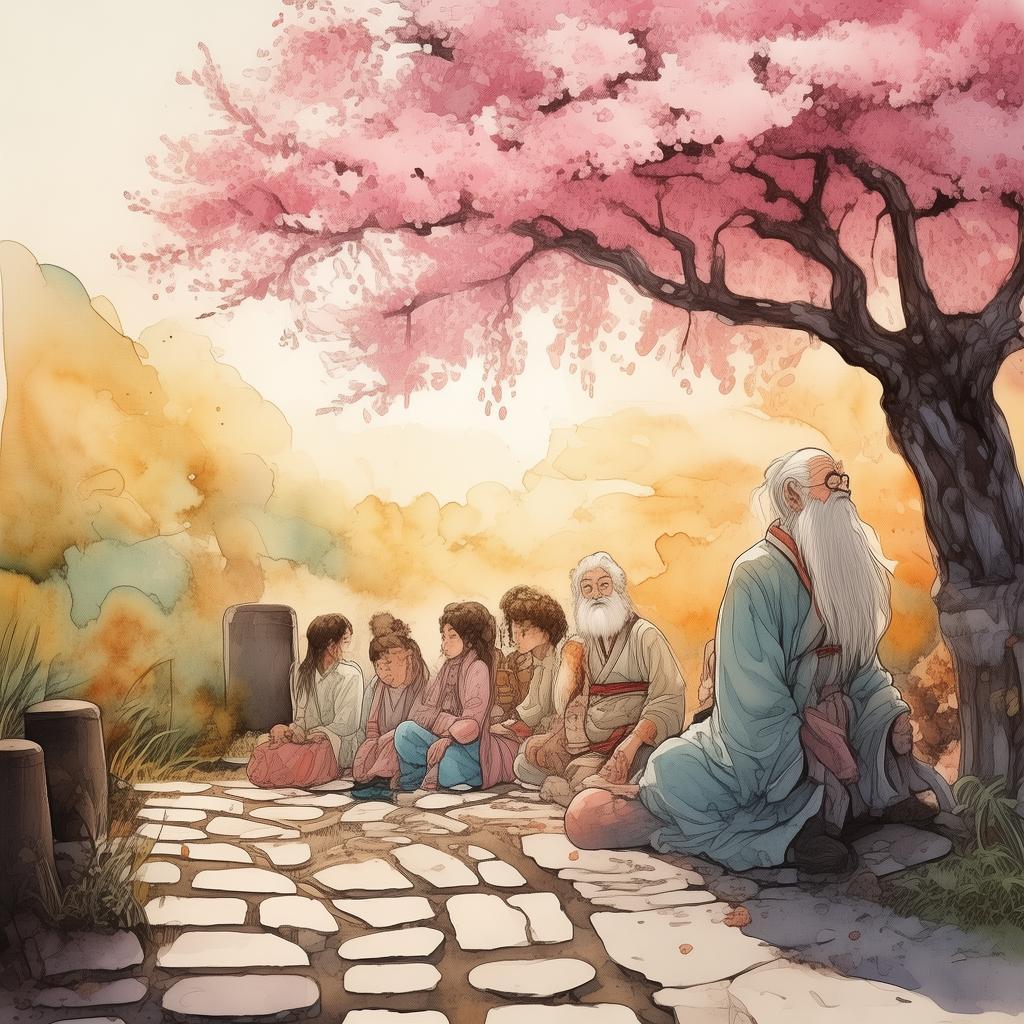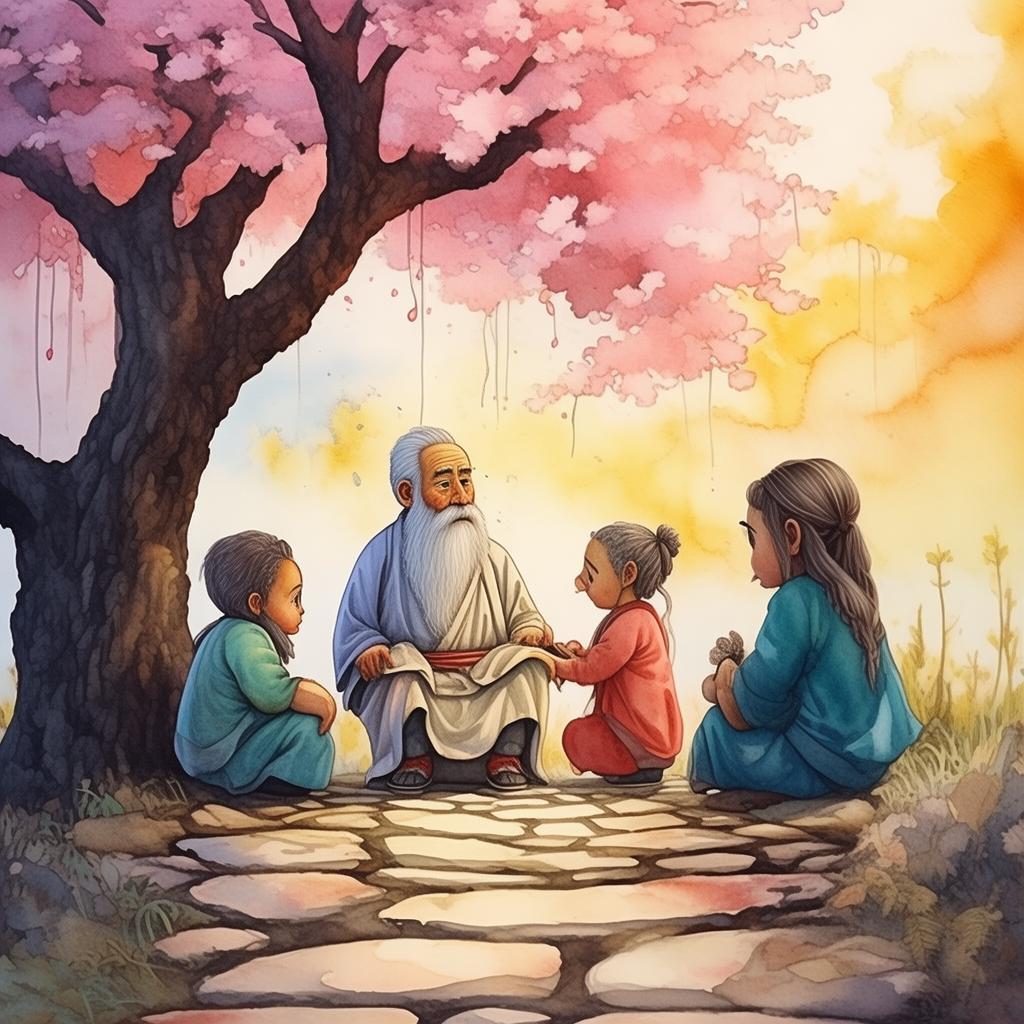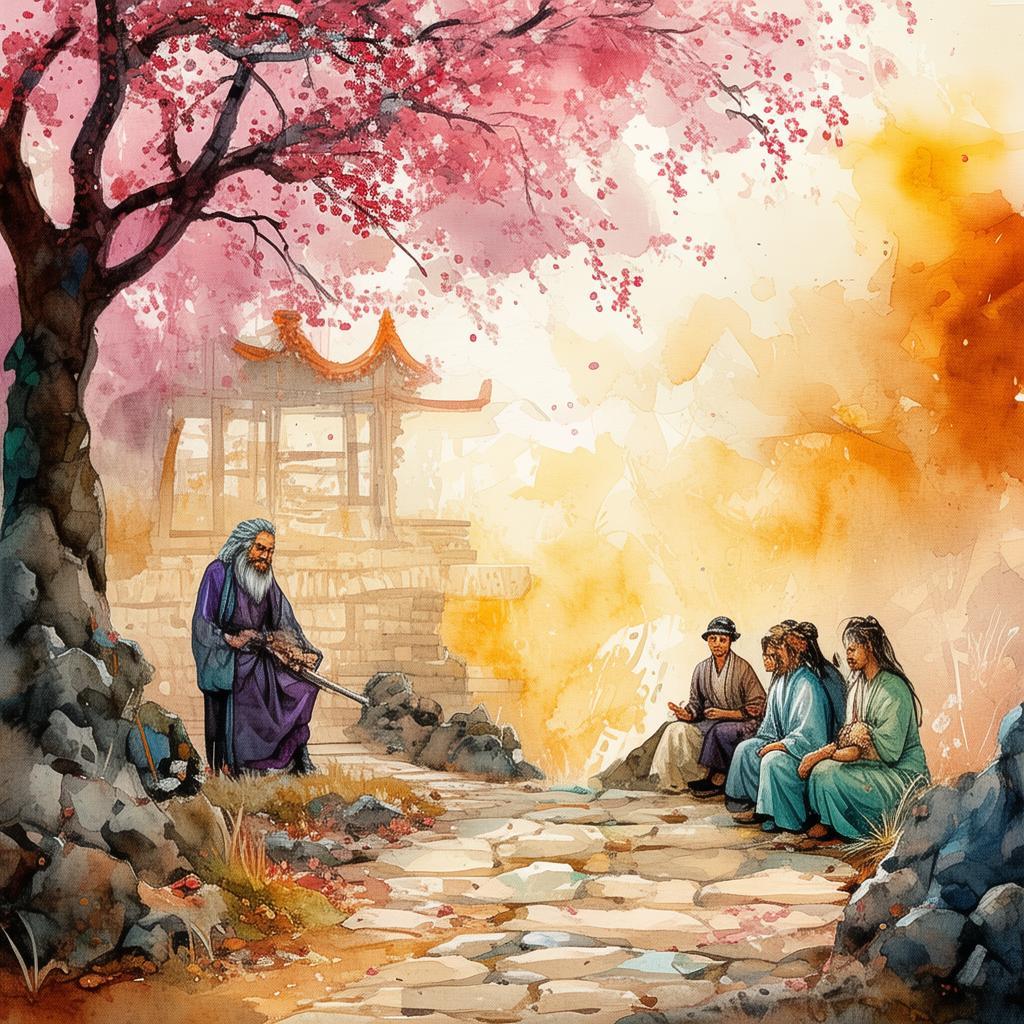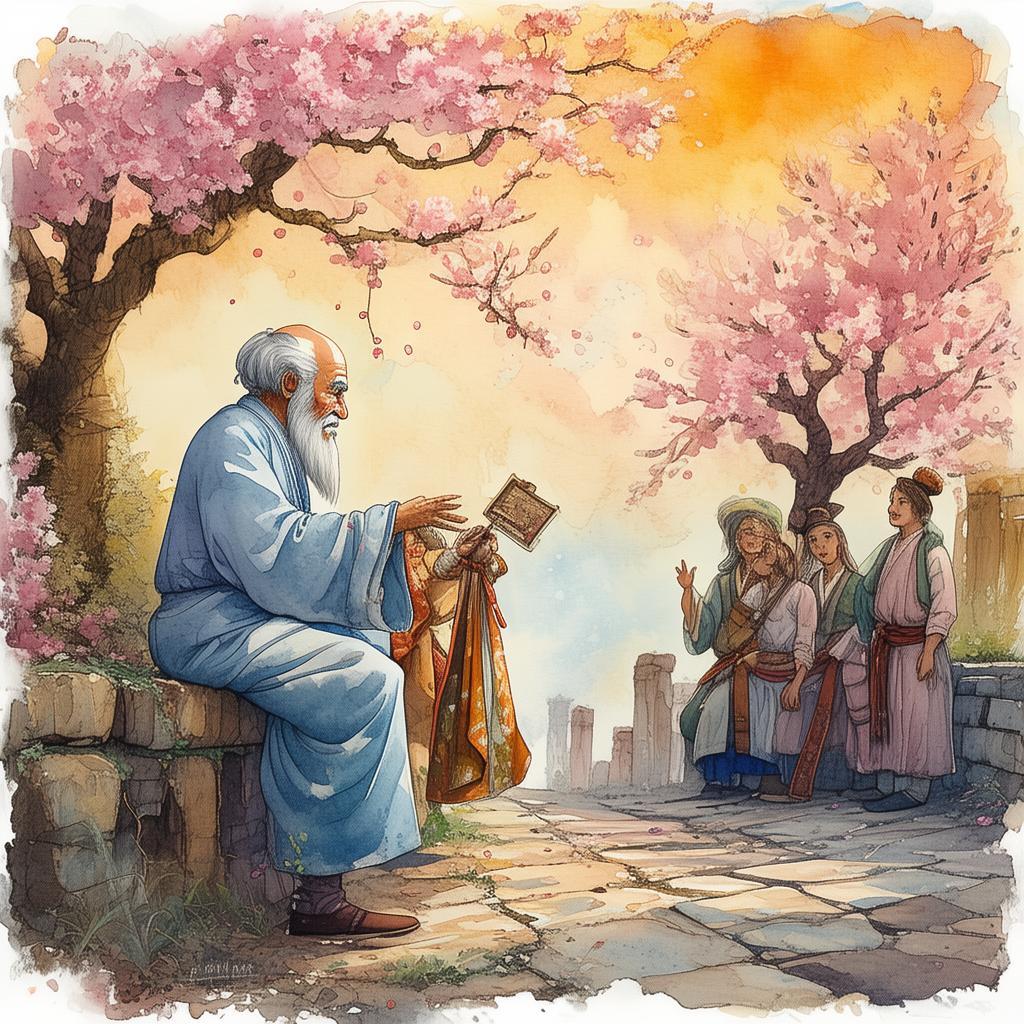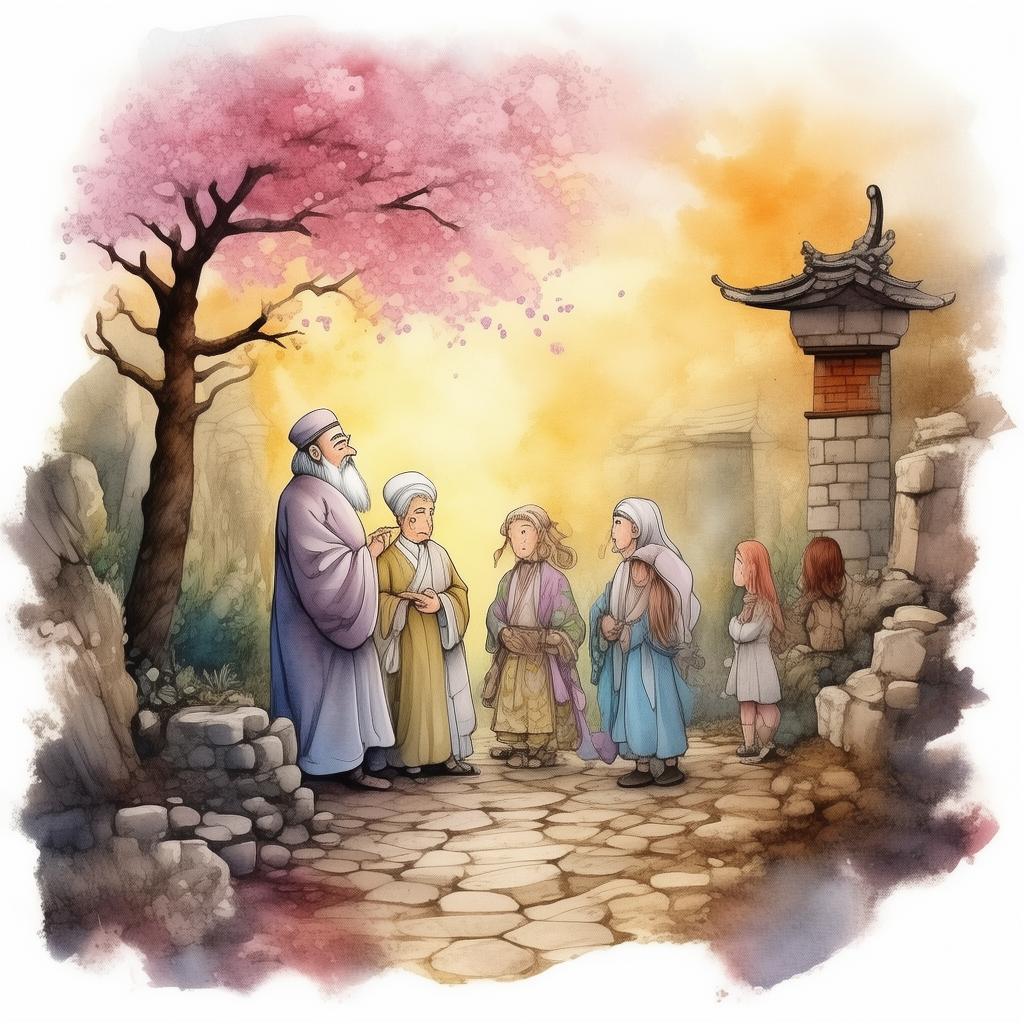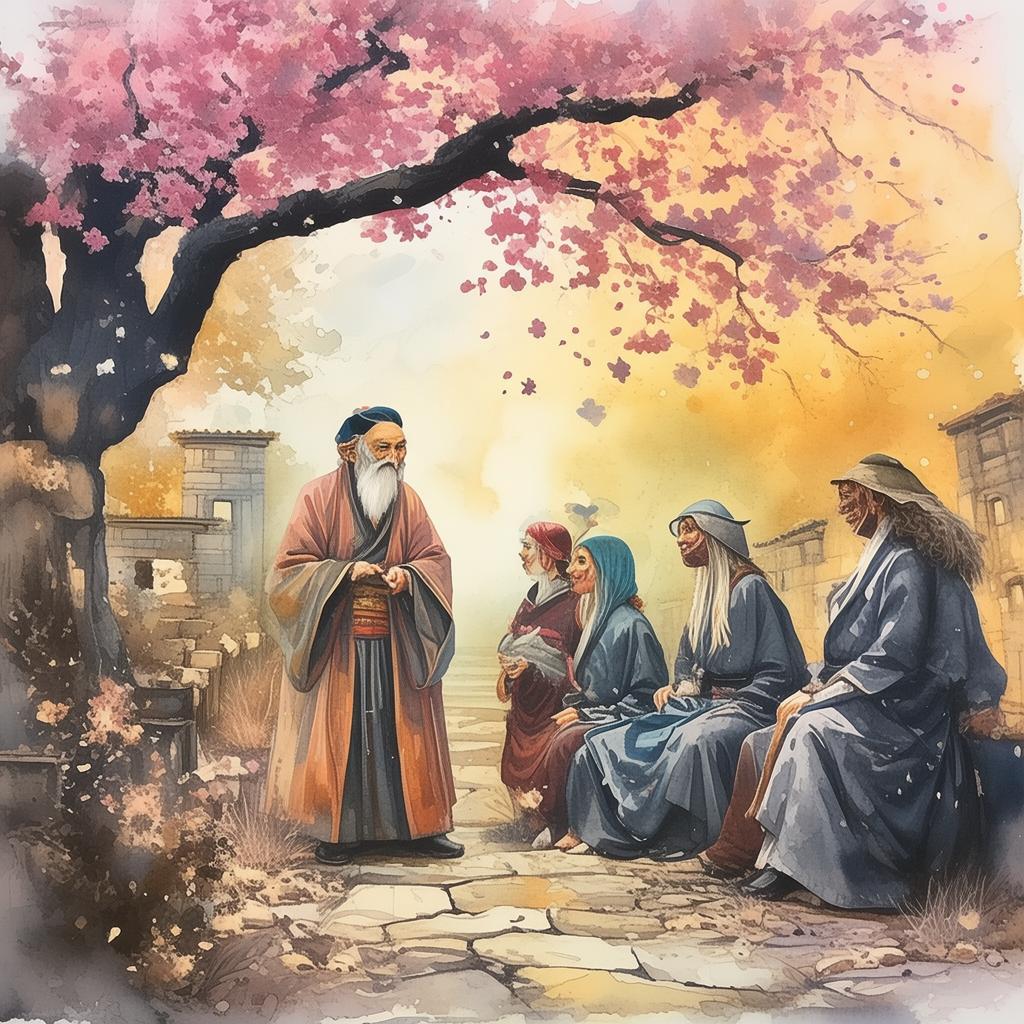The Tiny Tycoon: The Miraculous Rise of Wang Shou
In the bustling city of Chang'an, amidst the towering structures and the cacophony of trade, there lived a man named Wang Shou. He was small in stature, but his dreams were as vast as the empire he envisioned. Wang Shou was no ordinary merchant; he was a visionary, a tiny tycoon who aspired to change the world, one deal at a time.
Wang Shou's journey began in the humblest of circumstances. Born into a family of modest means, he spent his youth learning the art of trade from his father, a wise and resourceful merchant. Wang Shou was a quick learner, and he quickly developed a keen eye for business opportunities. However, he knew that to achieve his dreams, he would have to forge his own path.
One day, while walking through the bustling market, Wang Shou noticed a small, forgotten stall selling ancient artifacts. The stall was manned by an elderly man who seemed more interested in the dirt on his hands than the potential value of the items he was selling. Wang Shou approached the stall, and his heart raced with excitement. He saw a chance to innovate, to bring these forgotten treasures to the world.
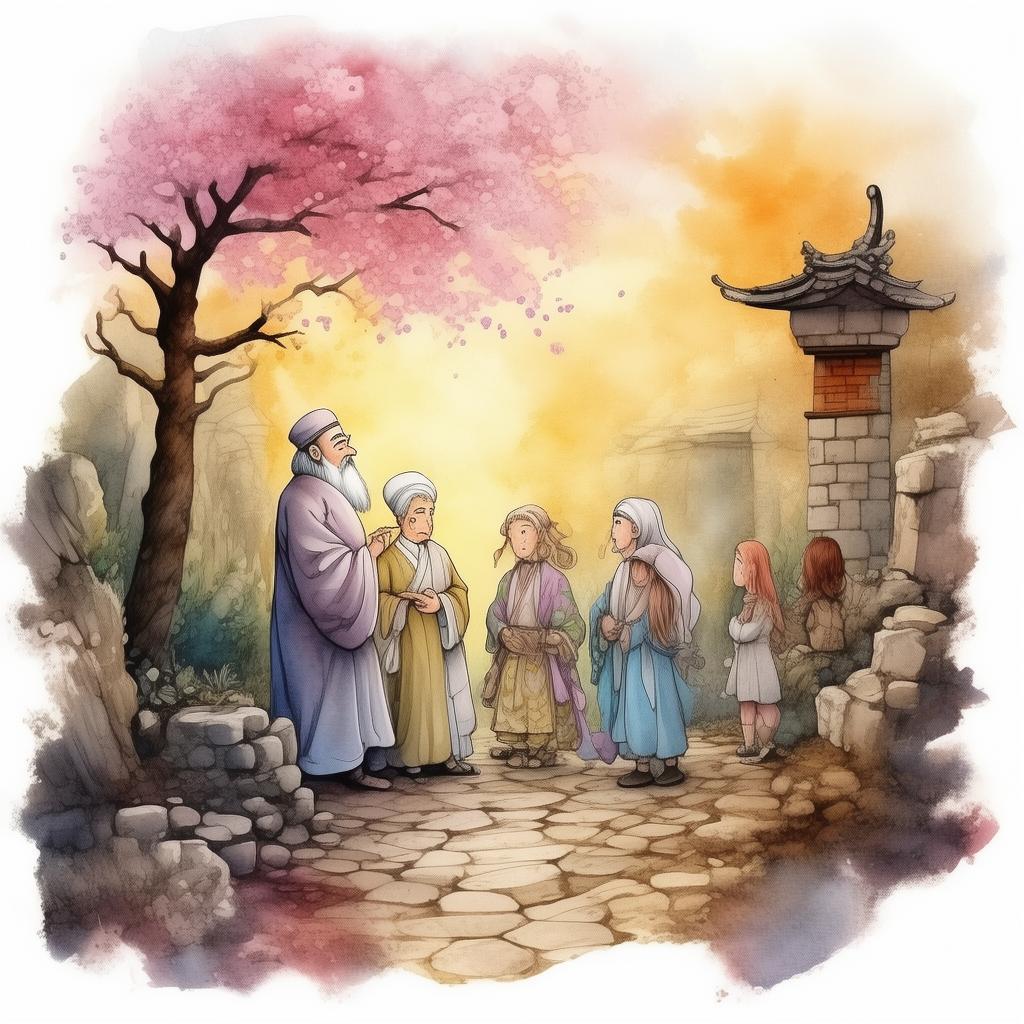
Wang Shou approached the elderly man and offered a modest sum for the artifacts. The man, taken aback by the young man's offer, hesitated. "These are not just any artifacts," he said, "they are pieces of history, of a time long forgotten." Wang Shou listened intently, his eyes wide with curiosity. He knew that if he could authenticate these items and bring them to the public, he could create a new market, one that would change the way people viewed ancient history.
With a spark of determination in his eyes, Wang Shou purchased the artifacts and set out to authenticate them. He spent days, weeks, even months, researching and traveling to the far corners of the empire. His perseverance paid off when he discovered that the artifacts were indeed rare and valuable. Wang Shou's innovation in marketing these pieces of history led to a sensation, and soon, he was known far and wide as the man who brought ancient treasures to life.
As Wang Shou's business grew, so did his reputation. He became a symbol of innovation and perseverance, a tiny tycoon who had turned the world upside down. His success was not just in the profits he made, but in the way he changed the way people thought about history and art. He introduced a new era of collecting, one that valued the stories behind the objects and the connection they provided to the past.
But Wang Shou's journey was not without its challenges. He faced competition from established merchants who saw his success as a threat. He also encountered skepticism from those who could not believe that a small man like him could achieve such greatness. However, Wang Shou's resolve never wavered. He believed in the power of innovation and the importance of sharing knowledge.
One of the most significant moments in Wang Shou's career was when he organized the first ever "Art and Antiquity Fair." The event was a resounding success, drawing collectors, scholars, and enthusiasts from all over the empire. It was at this fair that Wang Shou unveiled his most ambitious project yet: a comprehensive catalog of all the artifacts he had authenticated. This catalog, known as the "Imperial Collection," became the standard for collecting and evaluating ancient items, and it was used for generations to come.
Wang Shou's rise to prominence was not just a testament to his business acumen, but to his character. He was a man who never lost sight of his dreams, even when faced with adversity. His story became a symbol of the Chinese proverb, "A journey of a thousand miles begins with a single step," inspiring countless individuals to pursue their own dreams, no matter how big or small.
As Wang Shou looked back on his life, he realized that his success was not just about wealth and power, but about the impact he had on the world. He had turned the world upside down, not by altering the physical landscape, but by changing the way people saw the world. He had shown that with determination, innovation, and a little help from the past, even the smallest man could achieve the greatest of dreams.
In the end, Wang Shou's legacy was not just his vast collection of artifacts or the empire he built, but the example he set for others. He had proven that size doesn't matter when it comes to achieving greatness, that it is the heart and the spirit that truly define a person's success. And so, the tiny tycoon who turned the world upside down became a legend, a story that would be told for generations to come.
✨ Original Statement ✨
All articles published on this website (including but not limited to text, images, videos, and other content) are original or authorized for reposting and are protected by relevant laws. Without the explicit written permission of this website, no individual or organization may copy, modify, repost, or use the content for commercial purposes.
If you need to quote or cooperate, please contact this site for authorization. We reserve the right to pursue legal responsibility for any unauthorized use.
Hereby declared.
